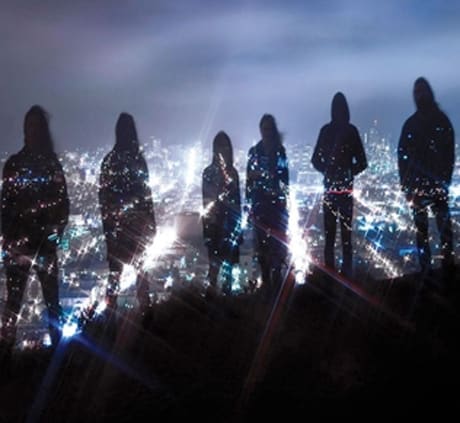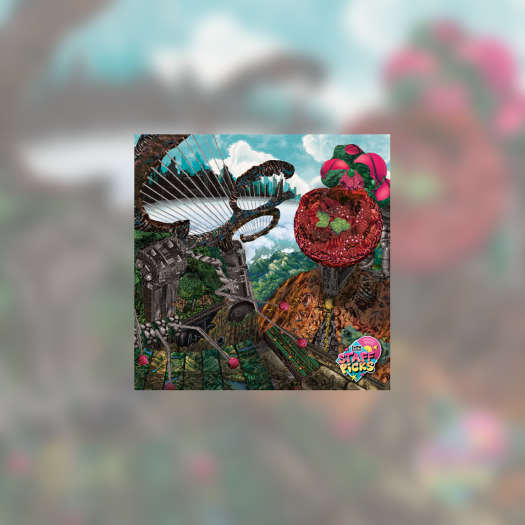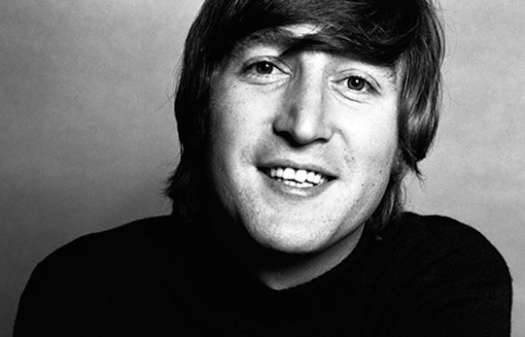There has always been something special about San Francisco, CA's Hammers of Misfortune. Their mix of urban grit and fantastical power/folk metal is just too weird not to love, and on this album, the band's already remarkable songwriting has reached new incredible places (see "The Grain," have mind blown). I know the clean, crooning crap vocals are a stumbling block for some, but I always say when the vocals get too unbearable just listen to the tunes (c'mon, we did it for Coalesce and Pantera, we can do it here). After all, not many bands can tie together straight-up Judas Priest-style metal, frilly shirt power/folk ambitions, melodic sensibilities, seven-minute songs and heroic, anthemic choruses and not have it suck. Then, songs like "The Day the City Died" find the group taking their love for '70s prog-y rock to great places. And did we mention the positively life-affirming, unforgettable, amazing chorus to "The Grain"? Absolutely in a genre of their own, the only reason these guys continue to be so under the radar is their relentless nonconformity (right down to the recording style, with the occasional mistake making it onto the final take) and some moments of alienation where the smartness of the music just makes the listener feel dumb.
What is the significance of 17th Street? What 17th Street is the album named after?
Guitarist/vocalist John Cobbett: There is a 17th Street in my neighbourhood, just like in most U.S. towns and cities. My 17th Street is different from other peoples' 17th Street, but chances are if you live in the U.S., you have a 17th Street. That's kind of the point, if that makes any sense.
"The Day the City Died" has such a great '70s feel to it. Ever feel like you were just born at the wrong time?
I hear they had all kinds of cool stuff in the '70s, like roadies, groupies and record sales, but surely that only happened for a small minority of artists. Anyway, we get the '70s comparison a lot. Maybe because we don't use digital keyboards, just piano and organ. Maybe because we're more interested in songwriting than creating a specifically targeted wall of sound. We don't try to sound like we're from another time or place; we're just using sounds and techniques that sound good to us. Records from the '70s sound a hell of a lot better than stuff coming out now. Hyper-compressed mixes and blatantly Auto-Tuned vocals sound horrible. Someday soon I hope we all look back and laugh at this nonsense.
(Metal Blade)What is the significance of 17th Street? What 17th Street is the album named after?
Guitarist/vocalist John Cobbett: There is a 17th Street in my neighbourhood, just like in most U.S. towns and cities. My 17th Street is different from other peoples' 17th Street, but chances are if you live in the U.S., you have a 17th Street. That's kind of the point, if that makes any sense.
"The Day the City Died" has such a great '70s feel to it. Ever feel like you were just born at the wrong time?
I hear they had all kinds of cool stuff in the '70s, like roadies, groupies and record sales, but surely that only happened for a small minority of artists. Anyway, we get the '70s comparison a lot. Maybe because we don't use digital keyboards, just piano and organ. Maybe because we're more interested in songwriting than creating a specifically targeted wall of sound. We don't try to sound like we're from another time or place; we're just using sounds and techniques that sound good to us. Records from the '70s sound a hell of a lot better than stuff coming out now. Hyper-compressed mixes and blatantly Auto-Tuned vocals sound horrible. Someday soon I hope we all look back and laugh at this nonsense.




